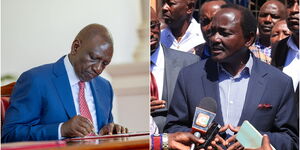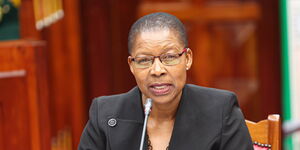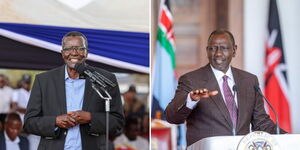Former United States Special Envoy to Haiti, Dan Foote has raised concerns over the effectiveness of the mission to Haiti, lamenting that it has been an ongoing battle dating back for 20 years.
The former envoy indicated that the US has repeatedly been involved in a security operation in Haiti without considering its ramifications in the long run.
He questioned whether killing the Haitian gangs would ultimately bring stability to the conflict-riddled country.
"We can't just go in and kill a bunch of bad guys and call it a day, go back in fifteen years and do it again. I mean, that's what we've been doing. But I don't think that's the answer," Foote explained.
Foote also questioned the capacity of Kenyan police officers to train Haiti cops to mitigate the threats posed by the gangs.
"The Kenyan police is (average). They're not terrible, but they're certainly not great, and they're certainly not in a position where they ought to be training (police in) a country in such a shaky security situation," he stated.
His remarks came after it emerged that 2,000 Haitian police would be sent to Kenya for intensive training following the delay of the Kenya mission.
The plan to send 1,000 Kenyan cops to Haiti still remains on course as President William Ruto recently projected the mission to begin in three weeks.
Challenges that have delayed the mission include the lack of adequate funds as donor countries have raised Ksh2.7 billion out of the estimated Ksh79 billion required for the operation.
"The role (of the mission's deployment) is still fairly undefined and 2,500 guys don't stretch thick. It was probably limited by the purse but going into a situation where gangs have all kinds of heavy weaponry with 2,500 guys is ridiculous," Foote pointed out.
Foote was appointed as the special envoy to Haiti in July 2021 at a time when Haitian President Jovenel Moise was assassinated.
He later tendered his resignation in September 2021 citing that he would not take part in the US's approach to deport thousands of Haitian refugees. He termed the decision a flawed policy and pointed out that the move would have dire consequences.












